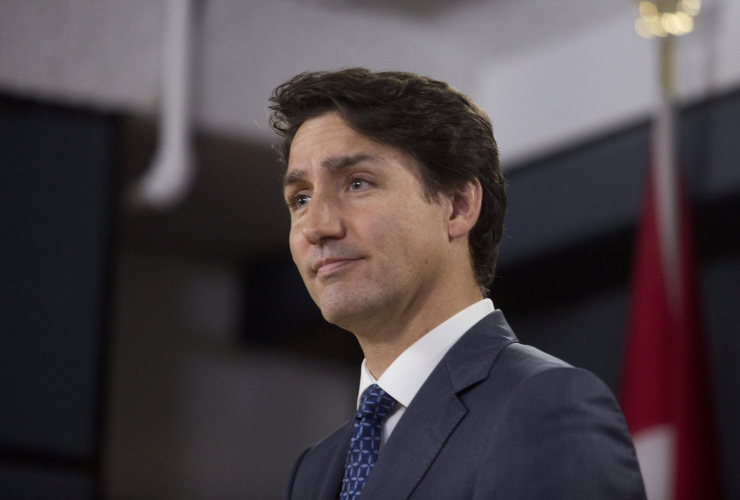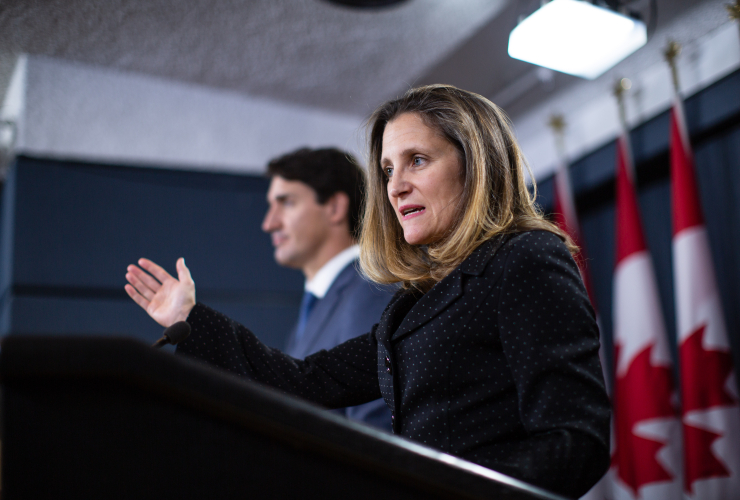In her fall economic statement, Finance Minister Chrystia Freeland announced key changes to the First Nations Land Management Act, payouts for settlement claims, more funding for the law that supports Indigenous sovereignty over child welfare and family services, and details on how Canada’s critical minerals strategy might affect remote Indigenous nations. Here are some of the key takeaways from Thursday's fiscal update:
First Nations Land Management Act gets a new framework
The updated law will provide a framework to streamline all self-government agreements, effectively removing barriers for First Nations to opt out of the Indian Act. Previous First Nations’ land management agreements required royal assent. Now, First Nations can use the framework without having their land management agreements that would exist outside the Indian Act pass through the House and Senate.
Canada plans to go big on critical minerals strategy
Canada is entering a pivotal industrial transition period, according to a senior government official speaking on background about the fiscal update. The federal government hopes to position Canada as a global supplier of critical minerals for batteries, electric vehicles and clean technology. It’s under pressure to promote the critical mineral industry following the U.S.’s passing of the Inflation Reduction Act, which the senior government official warned could become a “gravitational black hole” drawing industrial investments to the U.S.
But how will the expansion of critical mineral mining affect remote Indigenous nations? Earlier this year, a new Indigenous policy framework put Indigenous knowledge on par with western science in the federal government’s environmental and impact assessments.
The fall economic statement acknowledged the ongoing development of a benefits-sharing framework that seeks to ensure Indigenous nations benefit from future resource development projects. Details about that framework, announced earlier this year, are expected in 2023.
For example, in northern Ontario alone, there are more than 26,000 active mining claims in what is called the Ring of Fire, an area just under 5,000 square kilometres, or nearly the size of Prince Edward Island. The development is setting up a battle between First Nations who want a larger say in development and Canada’s goal to ramp up its critical mineral strategy.
Advancing reconciliation with Indigenous Peoples
The government has spent nearly $6 billion in claims settlements with Indigenous nations this fiscal year, with an extra $1 million promised for next year. For example, in mid-October, the government of Canada paid more than $63 million to Niisaachewan Anishinaabe Nation following a claim that began 20 years ago over allegedly unauthorized construction and operation of two dams that flooded their community.
Bill C-92, or An Act respecting First Nations, Inuit and Métis Children, Youth and Families, received a top-up of nearly $1.6 billion in funding until 2027. This money will continue to give Indigenous nations more control over their children’s welfare, particularly jurisdiction over child and family services.
The fall economic statement also allocated $1.7 billion in additional funding for First Nations Child and Family Services and Jordan’s Principle, which requires the federal government to make sure First Nations children have access to timely health care, education and social services.
The funds will strengthen existing services and support negotiations for the federal government’s final child-welfare settlement agreement with First Nations children and families. The federal government committed $40 billion to the settlement through agreements in principle in January, however, the Canadian Human Rights Tribunal rejected part of that proposed agreement last month. Another $4 billion was previously announced for Jordan’s Principle in Budget 2022.
Matteo Cimellaro / Local Journalism Initiative / Canada’s National Observer







Comments